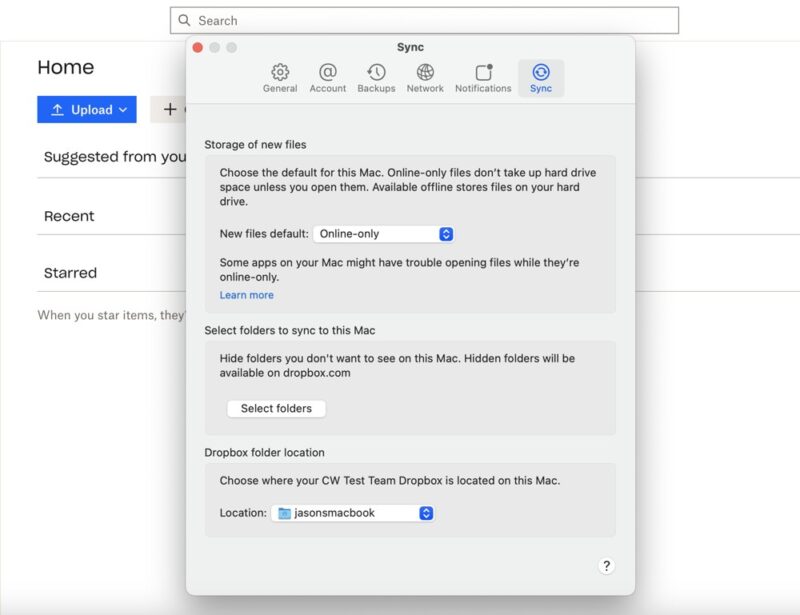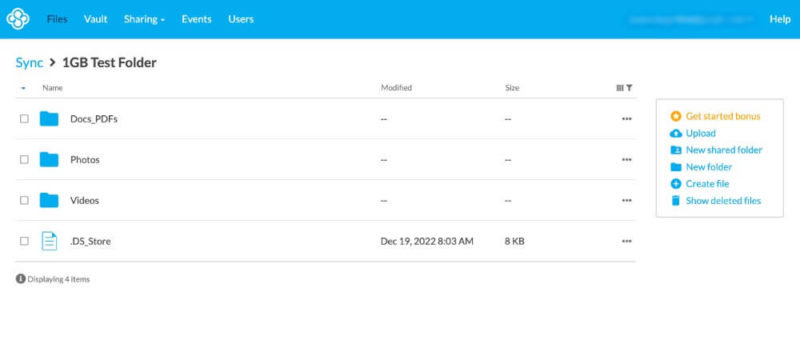Cloud Storage vs External Hard Drive: Which to Use in 2025?
Cloud storage is a popular service that keeps your data in sync and offers a way to free up data space on your devices. An external hard drive is another option for moving data off your device. We look at both options in our cloud storage vs external hard drive comparison.
Storing data off your device is a great way to save space, manage files or archive older items. You can achieve these results using cloud storage or an external hard drive. However, there are some significant differences between the two. Read on for our thoughts on cloud storage vs external hard drive.
Choosing from one of the best cloud storage providers could be the best option for most. Cloud storage is easy to use and comes with plenty of features, and many services offer free or low-cost plans. However, with physical storage devices, you retain complete control of your data, which is essential for data security.
-
03/04/2024 Facts checked
We rewrote this guide to provide a better comparison between using cloud storage and an external hard drive. We also included a top cloud storage recommendation.
External Hard Drive vs Cloud Storage Comparison
We will compare external hard drives and cloud storage services based on several common categories, like security, cost and sync functionality. The most obvious difference between the two is that an external hard drive is a piece of hardware and cloud storage is an online service. Read on to see how the two options stack up.
Security
Security is a critical factor, as no one wants their data to be compromised, exposed, leaked or stolen. Most cloud storage providers use AES 256-bit encryption to protect data while it is stored on multiple servers. This type of encryption also protects against brute-force attacks that try to repeatedly and rapidly guess your credentials.
TLS/SSL encryption protocols are another common type of data protection cloud storage that companies use. This encryption protocol protects data while in transit. TLS/SSL stops man-in-the-middle attacks that attempt to impersonate the intended destination during transfers.
Encrypting your data before transferring or encrypting the entire external hard drive adds the same protection that cloud storage uses. Physical security is another consideration with an external hard drive. If your device is lost or damaged, you could lose your data.
Winner: Cloud storage
Pricing
The main factor impacting the cost of a cloud storage subscription or an external hard drive is how much storage capacity you need. For most, a free plan with a cloud storage provider won’t have enough space, as they only offer an average of five to 10GB. However, many lower-priced plans offer several hundred to 2TB of data storage for an affordable price.
External hard drives typically have only one cost: the upfront payment to purchase one. No subscription is needed, so it will save you money over time. However, the upfront cost could seem high, especially if you need a lot of space.
Winner: External hard drive
Universal Access
One of the better features of cloud storage is the ability to access your data as long as you have an internet connection. Nearly all cloud storage apps are compatible with Mac or Windows desktop and mobile apps for iOS and Android. Another way you can access your data from anywhere is to log in to your account from a web browser.
An external hard drive is more limited, as it requires a direct connection to your computer to upload or download files. If you don’t have the hard drive, you can’t access your data until you connect the device to your computer again. However, you don’t need to be connected to the internet to manage your files.
Winner: Cloud storage
Syncing Capability
File sync is one of the defining features of a cloud storage service, as it keeps any changes you make to a given file or folder synchronized and updated in your account. Dropbox is a great example, as the sync folder originates on a computer. It has excellent file-syncing capabilities, such as selective sync and block-level sync. We explore more in our Dropbox review.

selective sync and designating files as “online only.”
In most cases, an external drive requires you to manually add or remove folders and files to keep them updated. If you work with a file from within the external hard drive, it will update the changes. However, if you make changes without the external hard drive attached, the file might only update the next time you connect it to your device.
Winner: Cloud storage
The Best Cloud Storage Provider: Sync.com

using the web interface or a downloadable app.
Pros:
- Private encryption
- Secure file sharing
- Excellent file versioning
Cons:
- Slower speeds
Sync.com does a good job of keeping your data private by using zero-knowledge encryption for your entire account. With zero-knowledge encryption, only you can access your account; not even Sync.com can access your password. Additionally, Sync.com protects your data with AES 256-bit encryption and TLS/SSL encryption protocols.
File sharing and versioning are other excellent features. You can share a folder or file with another Sync.com member via an email address, or you can share a file with anyone via a link. Sync.com doesn’t limit the number of file versions you can keep, only how long you can keep them. Free accounts get 30 days of version history and paid accounts can get up to 365 days.
You can try Sync.com for free and get 5GB of storage space. Check out our Sync.com review for more information.
- 5GB
- 2TB
More plans
- 6TB
- Price includes 3 users
- 1TB
- Monthly price for 1 user (3 users minimum) Yearly price for 3 users
- Unlimited GB
- Minimum 100 users, custom requirements, account manager, training options
Final Thoughts
Cloud storage services will offer the best results for most users looking to keep their data updated and synced. Cloud storage can help you free up disk space or share files. You can also easily set it up and access it like a local drive, if you prefer.
External drives are great for offloading unneeded data to free up disk space. However, they lack many of the features of cloud storage, and you run the risk of losing your data to a hardware failure.
Nonetheless, you’ll never go wrong in case you decide to get copies on both cloud storage and a hard drive. For iPhone users seeking an alternative backup solution, be sure to check out our guide on how to backup iPhone to external hard drive.
Did you find this cloud storage vs external hard drive guide useful? Do you prefer cloud services or external hard drives? What do you like about either option? Which option would you recommend? Let us know in the comments section below. Thanks for reading our article.
FAQ: Hard Drive vs Cloud Storage
For most people, using cloud services is the better option. Cloud storage does more than just store your data, and you can access your account as long as you have an internet connection.


